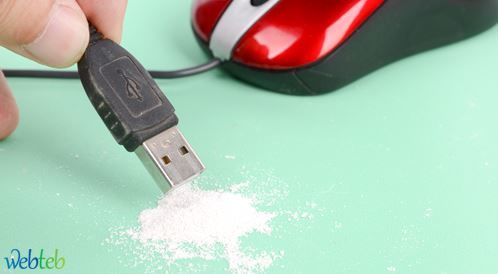Internet addiction is defined as a desire that can not be controlled for browsing, tension and repeated attempts to stop the use.
A new study found a relationship between Internet addiction and depression and drug abuse among teenagers . In the study, published in the Journal of Clinical Psychiatry, the researchers claim that Internet addiction turned to compulsive behavior in adolescents, to the extent that stop surfing the Internet could lead to medical and psychological consequences.

Researchers from Yale University studied the questionnaires collected from 3,500 students from ten high schools in the state of Connecticut, United States of America. The researchers decided whether there is addiction among adolescents online through the assessment of their answers to questions such as whether they feel an irresistible desire to surf the internet, or whether they are suffering from a growing tension when they can not surf the Internet.
The researchers found that one out of every 25 teenagers "abusing the Internet," according to their appreciation, and these teenagers are more likely to have medical and psychological problems when not browsing the Internet.It is not clear whether the use of computer-compulsive disorder is the cause of depression and drug abuse or that these two problems Tencian because of the personal nature of the teenager.
Dr. Elias specializes in the problems caused by excessive use of the Internet at Stanford University, says, "already is difficult to explain the relationship. Often looks like this the story of the chicken and the egg: Is browsing teenagers online because they are suffering from depression or they are depressed because they are browsing the Internet for long hours? "
The research team, led by Dr. Timothy Liu, Sal 3500 teenager more than 150 questions about health, serious types of behavior and impulsivity, including seven questions about the use of the Internet. Asked teenagers whether they had missed from school or important social activities because of surfing the Internet, or if their family members expressed concern about the frequency of their use of the Internet. Liu and his colleagues have identified mainly through three questions whether the student "abusing the Internet":
1 . Do they have once "desire can not be controlled" to surf the Internet?
2 . Do you feel nervous or worried he could calm him down just by surfing the Internet?
3 . Do they tried to stop or limit the use of the Internet?
With 4% of the students were identified misuse of the Internet. The girls had a greater likelihood to answer "yes" to one of the questions that have been identified misuse, but more boys said they spend about twenty hours a week online - 17% compared to 13% of the girls. Students who have been identified misuse of the Internet have according to the study, they were more inclined to become depressed and to participate in more brawls. Boys in this category were more likely to smoke and drug abuse. Surprisingly, the excessive use of the Internet did not affect the educational attainment of boys.
Liu and his colleagues say the results do not necessarily indicate a causal relationship between depression and drug abuse and Internet addiction , but Dr. Gerald Block, a psychiatrist at Oregon State University, says that the findings suggest a tendency to addiction. "I would say that there are sufficient data to determine that the excessive use of the Internet is an example of addictive." Block believes that since the level of classification surf the Internet done by the students themselves, it is possible that the study had discovered fewer children who abuse the Internet from the real number number.
"Almost in every addiction, there is a tendency to reduce the reported amount of time spent in specific activity," he explains. Block adds that he has no doubt that the psychiatrists will eventually admit to Internet addiction disorder in itself. "When a computer is used for 30 hours a week, the move, the computer itself becomes something important, there is a relationship with him."